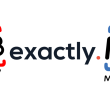The role of technology in healthcare has experienced remarkable growth in recent years. A wide range of advancements is significantly transforming the healthcare landscape. These include the introduction of electronic health records (EHRs) and the utilization of artificial intelligence (AI). However, integrating these innovative technologies into existing systems often presents numerous challenges. As a result, healthcare consultants play an increasingly valuable role in guiding organizations through this complicated maze of innovation. Their expertise helps streamline operations, improve patient outcomes, and enhance overall efficiency.
Healthcare consultants play a critical role in ensuring smooth staff training, overcoming resistance, and fostering a receptive environment for change. They bridge the gap between technology providers and healthcare practitioners by simplifying intricate technical terms and highlighting the tangible advantages of new innovations. Their contribution extends beyond mere advice, as they actively facilitate the successful navigation through the digital transformation journey.
Role of electronic health records
Electronic health records have gained significant importance as the healthcare industry transitions from utilizing paper records to digital formats. In this transformative phase, healthcare consultants play a pivotal role by providing guidance on selecting the most suitable EHR systems tailored to meet an organization’s specific requirements. They thoroughly analyze and present the advantages and disadvantages of different platforms, assist in vendor selection, and navigate through the intricacies of implementation.
Healthcare consultants provide crucial support in tailoring EHR systems to meet the specific needs of healthcare organizations. Their expertise ensures seamless integration with other software, thorough data capture, and easy usability for staff. By assuming this responsibility, they effectively alleviate the challenges associated with EHR implementation and contribute to enhancing overall healthcare efficiency.
A healthcare consultant salary is notable, reflecting their crucial role in enhancing EHR system utility in organizations. At Spring Arbor University, one acquires key skills like advanced troubleshooting, effective communication, system modification suggestions, and continual training delivery. These skills enable consultants to offer comprehensive EHR support and maximize its benefits.
The impact of EHRs on healthcare efficiency cannot be overstated. When a well-integrated EHR system is in place, it brings numerous benefits. First and foremost, it enhances the accuracy of patient data while reducing redundancy. This ensures that healthcare providers have access to up-to-date and reliable information whenever they need it.
Telemedicine implementation
Telemedicine, the remote delivery of healthcare services, is gaining prominence in the healthcare sector. With increasing adoption by organizations, the guidance of healthcare consultants becomes crucial for successful implementation. These professionals provide invaluable support to comprehend the various telemedicine models and their suitability based on patient demographics, prevalent health conditions, and existing infrastructure.
Consultants help to facilitate the technological setup necessary for telemedicine. They provide valuable guidance on selecting appropriate software, hardware, and ensuring smooth connectivity. Their expertise also ensures compliance with health information privacy laws. As a result, their involvement minimizes disruptions to service delivery and facilitates a seamless transition.
Healthcare providers must prioritize staff training and patient education when implementing telemedicine. Professional consultants in the healthcare industry assist by designing and conducting comprehensive training programs for personnel. These programs cover essential topics, including proper online consultation etiquette and data security protocols. Moreover, these experts also focus on developing patient education initiatives that highlight the numerous benefits and user-friendly nature of telemedicine services.
The significant role of telemedicine lies in enhancing access to care by eliminating geographical barriers. This innovative approach allows patients residing in remote areas to receive high-quality healthcare services. In addition, telemedicine reduces waiting times and optimizes resource allocation, fostering an efficient healthcare system. Consequently, the active involvement of healthcare consultants in integrating telemedicine contributes to creating a more accessible and streamlined healthcare ecosystem.
Use of big data analytics
Big data in healthcare is the utilization of extensive and intricate datasets to drive advancements in patient care. Healthcare consultants, equipped with their profound understanding of data analytics and healthcare systems, help organizations to harness the tremendous potential inherent in big data.
Healthcare consultants emphasize the importance of first identifying relevant data sources and establishing efficient systems to capture and store big data, all while adhering to strict privacy and security standards. Their expert guidance ensures the optimal collection of accurate and appropriate information.
Healthcare consultants then assist organizations by utilizing data analytics tools to convert raw data into practical and valuable insights. They play a crucial role in facilitating the comprehension and utilization of these tools, empowering healthcare providers to make informed decisions that enhance patient care.
In addition, healthcare consultants assist organizations by aligning their big data strategies with their overarching goals. They provide support in identifying key performance indicators, implementing user-friendly data visualization dashboards, and continuously assessing the effectiveness of significant data initiatives.
Big data analytics greatly contribute to informed decision-making in healthcare. By providing valuable insights into patient trends, treatment outcomes, and operational efficiency, big data assists healthcare providers in identifying areas for improvement, monitoring progress, and ultimately delivering enhanced care.
Integration of artificial intelligence
Artificial intelligence has started revolutionizing the healthcare sector, with its potential to enhance diagnostics, customize treatment plans, and optimize operational efficiency. To unlock these advantages, the expertise of healthcare consultants becomes indispensable as they guide organizations in seamlessly integrating AI into their daily operations.
Consultants provide guidance on selecting AI tools that align with an organization’s specific requirements. Factors such as cost, compatibility with existing systems, and the learning curve for staff are carefully considered in this process. Additionally, these professionals assist organizations in understanding and complying with the regulatory requirements associated with implementing AI technology in healthcare. Their expert knowledge helps minimize any legal risks involved.
Healthcare consultants also develop AI implementation strategies. They analyze the different aspects of operations, identify suitable processes for automation, assess AI’s potential to support decision making, and determine opportunities to improve patient interactions. Working closely with organizations, these consultants ensure that the devised strategies align effectively with their overall objectives.
Another crucial role that consultants play in healthcare is providing training and support for the implementation of AI technology. Given its complexity, healthcare staff often require guidance to effectively utilize it. Consultants take charge of developing comprehensive training programs, offering technical assistance, and fostering a culture of acceptance towards AI in the healthcare industry.
AI has a remarkable impact by significantly enhancing diagnostic speed and accuracy in the field. It can predict patient outcomes, personalize treatment plans, and automate routine tasks. Healthcare consultants help to integrate AI, contributing to an overall more efficient and effective healthcare system.
Promotion of mobile health applications
In recent times, the usage of mobile health applications, commonly known as m-Health apps, has witnessed a significant surge. These innovative tools empower patients to actively monitor their health status, access valuable medical advice, and communicate directly with healthcare providers through their smartphones. The critical role of healthcare consultants involves facilitating the promotion and seamless integration of these apps into the delivery of healthcare services.
Healthcare consultants provide guidance to organizations regarding the selection of m-Health applications. They evaluate the usability, security, and compatibility of these apps with existing systems. Additionally, they offer support in developing customized applications tailored to each organization’s specific needs.
Once an app is selected or created, healthcare consultants take charge of the implementation process. They ensure a seamless integration with other systems, provide staff training on its usage, and offer ongoing support. Furthermore, they strategize ways to effectively promote the app’s benefits and user-friendly interface to patients.
Healthcare consultants are instrumental in helping organizations assess the impact of Health apps. They play a vital role in monitoring app usage, gauging patient satisfaction, and tracking improvements in health outcomes. Additionally, they provide valuable insights into potential enhancements that can optimize the benefits derived from these apps.
Healthcare consultants contribute to improved patient engagement by promoting and integrating m-Health apps. This enables patients to have more control over their health, leading to better outcomes and a more efficient healthcare system.
Internet of Things (IoT) in healthcare
The Internet of Things (IoT) holds great potential for healthcare, thanks to its interconnected devices and real-time data sharing. Healthcare consultants help organizations successfully integrate IoT into their operations, leveraging its benefits. They assist organizations in comprehending the concept of IoT and its potential applications within the healthcare sector. They delve into various opportunities presented by IoT, including remote patient monitoring, asset tracking, and predictive maintenance of medical equipment.
Next, consultants guide the selection and implementation of IoT devices. They meticulously ensure that the chosen devices align perfectly with the organization’s specific needs, while maintaining compatibility with existing systems and adherence to all relevant regulations. Additionally, they take charge of overseeing the smooth setup of the required data infrastructure to seamlessly support IoT integration.
Consultants help to address security concerns by guiding organizations through setting up robust security measures. With the increasing number of connected devices, the risk of data breaches escalates, making their expertise even more crucial. They ensure data integrity and patient privacy, providing valuable guidance to mitigate potential risks.
IoT has the potential to greatly enhance healthcare efficiency through continuous monitoring and real-time data analysis. This enables early intervention, shorter hospital stays, and reduced equipment downtime. Healthcare consultants play an essential role in facilitating the integration of IoT technology to harness these benefits.
Integration of robotics and automation
Robotics and automation have revolutionized different facets of healthcare, transforming areas ranging from surgery to patient care and administrative tasks. Pioneering the way forward are healthcare consultants who expertly navigate the exciting yet intricate process of integrating these cutting-edge technologies.
In the realm of robotics and automation, embarking on this transformative journey starts with a foundational step: comprehending the technology and its practicality. To navigate this intricate path, healthcare consultants merge their expertise in both technological advancements and healthcare workflows. Their invaluable guidance enables organizations to pinpoint specific areas where robotics can augment efficiency and ultimately improve outcomes.
Furthermore, consultants aid in the selection and implementation of robotic solutions. They thoroughly evaluate various options while considering factors such as cost, functionality, compatibility with existing systems, and regulatory requirements. Subsequently, these experts guide the organization through a seamless transition by facilitating the implementation process.
Training healthcare staff to work with robotic technologies is a crucial responsibility taken on by consultants. They are responsible for designing and delivering training programs, providing ongoing support, and fostering a culture of acceptance towards these groundbreaking technologies.
Automation and robotics have the incredible potential to enhance precision and efficiency in healthcare. They effectively minimize human error, automating repetitive tasks, thus granting healthcare professionals more time to dedicate to providing patient care. Through their expertise in promoting the integration of automation and robotics, healthcare consultants empower organizations to harness these advantageous outcomes.
Encouraging the use of cloud computing
Cloud computing offers healthcare organizations flexible access to data and applications, leading to improved collaboration and efficiency. The guidance of healthcare consultants is crucial in driving the adoption of cloud computing and assisting organizations with seamless integration.
Consultants help organizations comprehend the concept of cloud computing, along with its benefits and potential challenges. They evaluate an organization’s preparedness for adopting cloud technology, considering various factors like existing infrastructure, data volume, and the level of IT literacy among staff members.
In the process, consultants take charge of selecting a suitable cloud service provider. They thoroughly assess various providers based on factors like security measures, healthcare regulation compliance, cost, and scalability. Once the ideal provider is chosen, they then provide assistance during the migration process to ensure minimal disruption to operations.
Consultants also train and support healthcare staff. They ensure that personnel feel at ease when utilizing the cloud platform, offering ongoing technical assistance. Moreover, they assist organizations in implementing data protection measures and complying with privacy regulations.
Cloud computing enables healthcare organizations to conveniently access data and applications from any location, promoting remote work and collaboration. Additionally, it reduces the need for physical servers on-site, thus saving valuable resources and cost. Healthcare consultants play a vital role in assisting organizations in adopting and integrating cloud computing, ensuring they reap these remarkable benefits.
Conclusion
In today’s rapidly evolving digital landscape, healthcare organizations face the imperative to keep up with the times. Technology holds the potential to revolutionize care delivery by making it more efficient, effective, and patient-centered. However, navigating the complex journey towards successful tech integration poses significant challenges. That is where healthcare consultants come into play.
With their strategic insights, vast industry knowledge, and technological expertise, these consultants serve as invaluable guides on this transformative path. They act as a vital bridge connecting technology and healthcare, ensuring that innovative possibilities become tangible realities. By actively engaging in this process, they greatly enhance the efficiency of healthcare organizations. It is evident that the future of healthcare lies in digitization. And in this digital age, it is the expertise of healthcare consultants that leads us forward.










